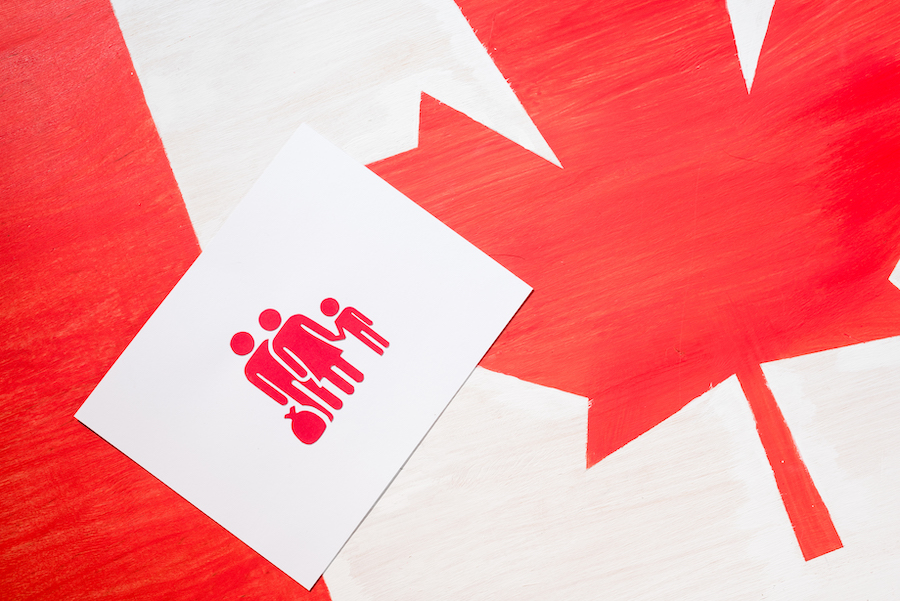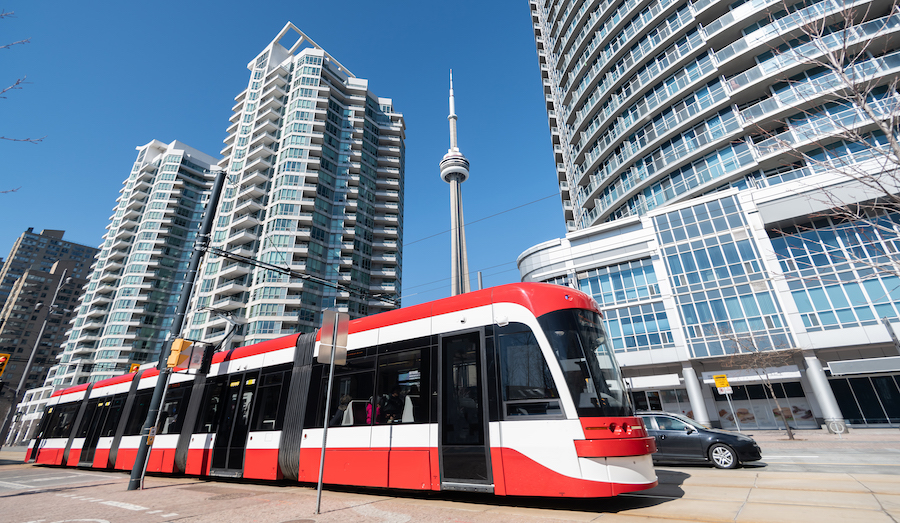Ontario Removes CRS Cap in New PNP
The draw for the CEC and FSWP will resume 'as soon as possible'
Ontario invited 773 Express Entry candidates to apply for a provincial nomination, reports CIC News. In this Ontario Immigrant Nominee Program (OINP), eligible candidates who have a Comprehensive Ranking System (CRS) score between 455 and 600 and one-year of work experience, were invited to apply for the Express Entry Human Capital Priorities Stream (HCP).
However, for this draw, only candidates who created their profiles between February 22, 2021, and April 29, 2021, were invited. Individuals who received the invitation have 45 calendar days to submit their application to the Provincial Nominee Program (PNP).
Ontario's biggest HCP draw to date was on January 27. A total of 1,032 candidates were invited to apply for Ontario's Skilled Trades Stream, another Express Entry stream. From those candidates, about 10 skilled refugees were able to apply for this draw, which allowed them to immigrate as a Provincial Nominee.
High-Scoring Candidates Can Now Apply
Since September 2021, there have been no Express Entry draws for anyone but PNP candidates. During the last year, candidates with scores higher than 467 were not invited to apply for a nomination, which led to some candidates purposely trying to reduce their scores in an attempt to get nominated.
Despite failing to provide a firm date, Immigration Minister Sean Fraser recently told business leaders that the draw for the Canadian Experience Class (CEC) and Federal Skilled Worker Program (FSWP) will resume as soon as possible.
The Minister also said he was hoping to add more flexibility to the Express Entry System. According to CIC News, he is looking to make it possible to use the system to respond to short-term needs. That would include welcoming people to high-demand sectors.
“If you actually look at the immigration levels plan over the next couple of years the balance is shifting back and by year three… a record number of federal skilled workers, including through the Canadian Experience Class, will be welcomed to Canada. By no means do I want to communicate that there will be any kind of abandonment of—what I would argue—is one of the most successful immigration programs anywhere in the world” said Fraser.
According to the new Immigration Levels Plan, Canada plans to welcome 83,500 immigrants through Express Entry and PNP categories this year.
What Is Canada Doing To Keep International Students?
Trying To Speed Up The Work Permit Process
Immigration, Refugees, and Citizenship Canada (IRCC) will use its 85-million-dollar budget to expedite the processing of Canadian work permits.
Work permits, study permits, proof of citizenship, and permanent residence card renewals are expected to return to normal by the end of 2022. However, until then, the IRCC states that they can not process applications as quickly or give accurate processing times for most applications.
IRCC Assistant Deputy Minster Daniel Mills said that the multi-million budget will not improve processing times for permanent residency applicants but allow the IRCC to develop tools such as electronic and online application systems.
Usually, it takes around 60 days for a work permit submitted outside of Canada to process, while work permit extensions submitted in Canada typically takes 120 days. According to the IRCC, these standards were met more than 87% of the time prior to the pandemic,
How Will This Delay Affect International Students?
Currently, the IRCC has a huge backlog of about 1.8 million applications, for which the processing times are unknown.
Currently, the backlog is not expected to affect application acceptance rates for international students. However, it could create issues for graduates that want to stay in Canada and work. People with expiring Post-Graduation Work Permits (PGWP) could lose their right to work unless they obtain a new Canadian work permit or permanent residency.
The Minister of Immigration said that he is focused on addressing the backlog and creating a more efficient system. Still, there are certain work permits that have sped up processes for workers in some sectors. The Global Talent Stream has a processing standard of 10 business days, according to CIC News.
What Is PGWP?
A post-graduation work permit is a document that allows you to stay and work in Canada after graduating from a Designated Learning Institution (DLI). A PGWP can be valid as long as your passport is and will only be extended in certain circumstances.
Along with graduating from an eligible institution, you must also meet all other criteria. For example, if you are in Canada while applying, you have up to 180 days to apply after you get your diploma, transcript, or an official letter from your school. To be eligible, your study permit must have been valid at some point during those 180 days.
Due to the temporary COVID protocol, students may still be eligible to apply for a PGWP, even if 100% of studies are completed online before August 31, 2022.
Canada Easing COVID-19 Test Requirements for Travellers
Children No Longer Have to Quarantine
Starting February 28, there will no longer be an obligation for fully vaccinated travellers to have a negative PCR test to enter Canada, and unvaccinated children will not have to undergo a 14-day quarantine.
Instead, fully vaccinated travellers will be able to enter Canada with a pre-arrival rapid test, approved by the country they are coming from, and taken no more than 24-hours prior to their arrival or scheduled flight. The test will also have to be administered by a laboratory or a healthcare professional since at-home tests are not enough to meet the pre-entry requirements.
Some travellers may be randomly selected for arrival testing, but they will not have to wait for the results in quarantine. All travellers will still be required to upload their documents in the ArriveCAN app.
Despite these changes, unvaccinated travellers still need to be tested and quarantined for two weeks upon arrival and get tested on their eighth day of quarantine.
Currently, a requirement for all travellers – regardless of their vaccine status – is to present a negative molecular test, such as a PCR test, within 72 hours of their scheduled flight or land entry.
International Travel Coming Back
Travel Minister Omar Alghabra announced that international flights to all Canadian airports will resume at the end of February. The government will no longer recommend Canadians avoid travel for non-essential purposes.
As stated in a media release - international flights carrying passengers will be permitted to land at all remaining Canadian airports that are designated by the Canada Border Services Agency to receive international passenger flights.
This decision comes a month after World Health Organization recommended countries lift international travel bans, in addition to the pressure from health experts and the tourism industry.
Health Minster Jean-Yves Duclos said that these measures are transitory and might be adjusted depending on the COVID-19 situation. According to CIC News, he also suggested that further easing of restrictions may follow if hospitalization rates decline.
What to Do If You Plan to Come to Canada
- Check if you are eligible to enter Canada
- Make sure you meet all entry requirements
- Submit mandatory Information in the ArriveCAN App
- If you had a previous infection, only molecular tests are accepted, taken at least 10 days prior to your arrival
- If you are unvaccinated, you will have to quarantine and a PCR test is needed
Canada Planning to Welcome 1.3 Million Immigrants
According to the Immigration Level Plan 2022-2024
Canada's federal government plans to increase the number of new permanent residents in the next three years and is hoping to resettle more than 1.3 million individuals by the end of 2024. The newly released Immigration Level Plan states that the resettlement goal for 2022 alone is 431,645.
At the same time, the IRCC is working through a massive backlog of applications that piled up during the pandemic. To speed up processing times, Immigration Minister Sean Fraser announced $85 million in new capital and software in an attempt to get back on track by the end of the year.
Despite these challenges, the Minister is confident these goals will be easy to hit, especially considering last year's record-breaking number of new permanent residents. According to him, increased immigration is crucial for Canada's post-pandemic recovery.
"If we want to be able to sustain our health care system, our public education system, the social services and benefits that are provided by different levels of government, we're going to need more workers and young families to come here," Fraser noted.
According to CIC News, 56% of new immigrants will arrive under the economic class pathways - such as Express Entry, the Provincial Nominee Program and the Temporary to Permanent Residence Stream.
The Provincial Nominee Program should be the main resource of immigrants in 2022, while Express Entry is cut in half for the same period. Regarding the Temporary to Permanent Residence Program, Canada is expecting to land 40,000 people by the end of this year, and the final 32,000 by 2023.
So far, Ontario has invited 749 workers to apply for a provincial nomination in 2022. There were 41 targeted occupations, mostly related to trades, health and agriculture.
How Does the PNP Program Work?
The Provincial Nominee Program enables Canada's provinces and territories to nominate candidates for permanent residence. It's a program for workers that have the skills, education and work experience to contribute to a province's economy. Each province has its own streams and requirements.
The application for this program depends on the specific streams a person is applying for, but regardless of the stream, you have to pass a medical exam and have a certificate you passed a police check. To be eligible, you must meet the minimum requirements of the province's non-Express Entry streams and be nominated by the province itself. To be nominated, you must also follow the instructions on the website of the province you want to live in.
Interest In Immigrating To Canada Is Still High
COVID Hasn't Impacted The Decision To Move - Study Finds
According to a new survey conducted by World Education Services Canada (WESC), over 13,000 prospective immigrants say they are still interested in moving to Canada.
In August 2021, the WESC, a provider of Education Credential Assessments for Canadian Immigration, created a survey related to education-based immigration during the COVID-19 pandemic. They aimed to understand how the pandemic might have impacted the motivation to move to Canada.
After analysing the results, WESC did not find any evidence that indicated a decrease in motivation. Nearly 52% of respondents noted that the pandemic has not impacted their plans of moving. In fact, almost 93% said that the pandemic would either have “no impact” or make them “more interested”.
Within the surveyed group, only 33% of respondents believe the pandemic would negatively impact job availability in Canada. In contrast, 35% of people felt that the pandemic would increase job availability, which is up from the 27% reported in 2020.
Many migrants’ attitudes surrounding Canada’s job market was more positive than the outlook in their home countries. As a result, about 77% of respondents said that Covid-19 wouldn’t affect their occupation or sector. That said, the top three reasons shared by participants for delaying immigration to Canada were:
- The increase of Immigration, Refugees and Citizenship Canada processing times;
- Travel restrictions; and
- A decrease in jobs in their field in Canada.
"Canada Is Better With Handling Patients"
Despite the pandemic, challenging economic situations, and personal circumstances, most respondents said they still planned to pursue Canadian permanent residency. For example, 74% of responders expressed interest in obtaining permanent residence regardless of the economic recession. However, part of that response stemmed from the perception that Canada is better equipped to combat the pandemic and care for patients.
In 2020, Canada was looking to welcome 341,000 immigrants, but after the pandemic hit and travel restrictions to prevent the spread of coronavirus were imposed, new immigrant landings were only 184,000 for the whole year.
Since then, most travel restrictions have been lifted and Canada's economy managed to improve in 2021. The country currently has the highest job vacancy rate on record, offering nearly a million available jobs.
Despite the IRCC’s enormous backlog, the lifting of restrictions has helped the country resettle 401,000 new immigrants in 2021. As a result of this success, more ambitious goals are being set. The current plan aims to welcome 411,000 new immigrants, 60% of which are set to arrive under the economic class. However, a new target will be announced by February 4, 2022, under the Immigration Levels Plan 2022-2024 which will reveal the number of new immigrants Canada aims to welcome this year, along with the categories they will fall under.





